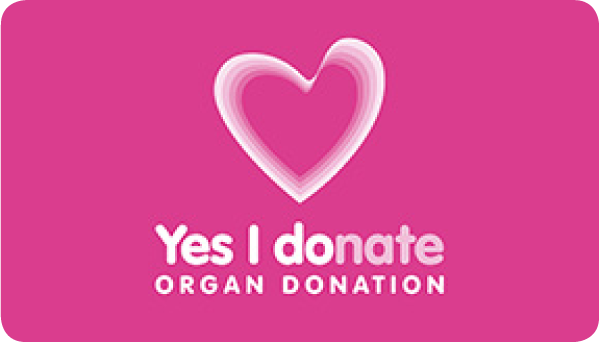SECOND – (22nd June) Coronavirus Advice Letters for the Extremely Vulnerable from the NHS
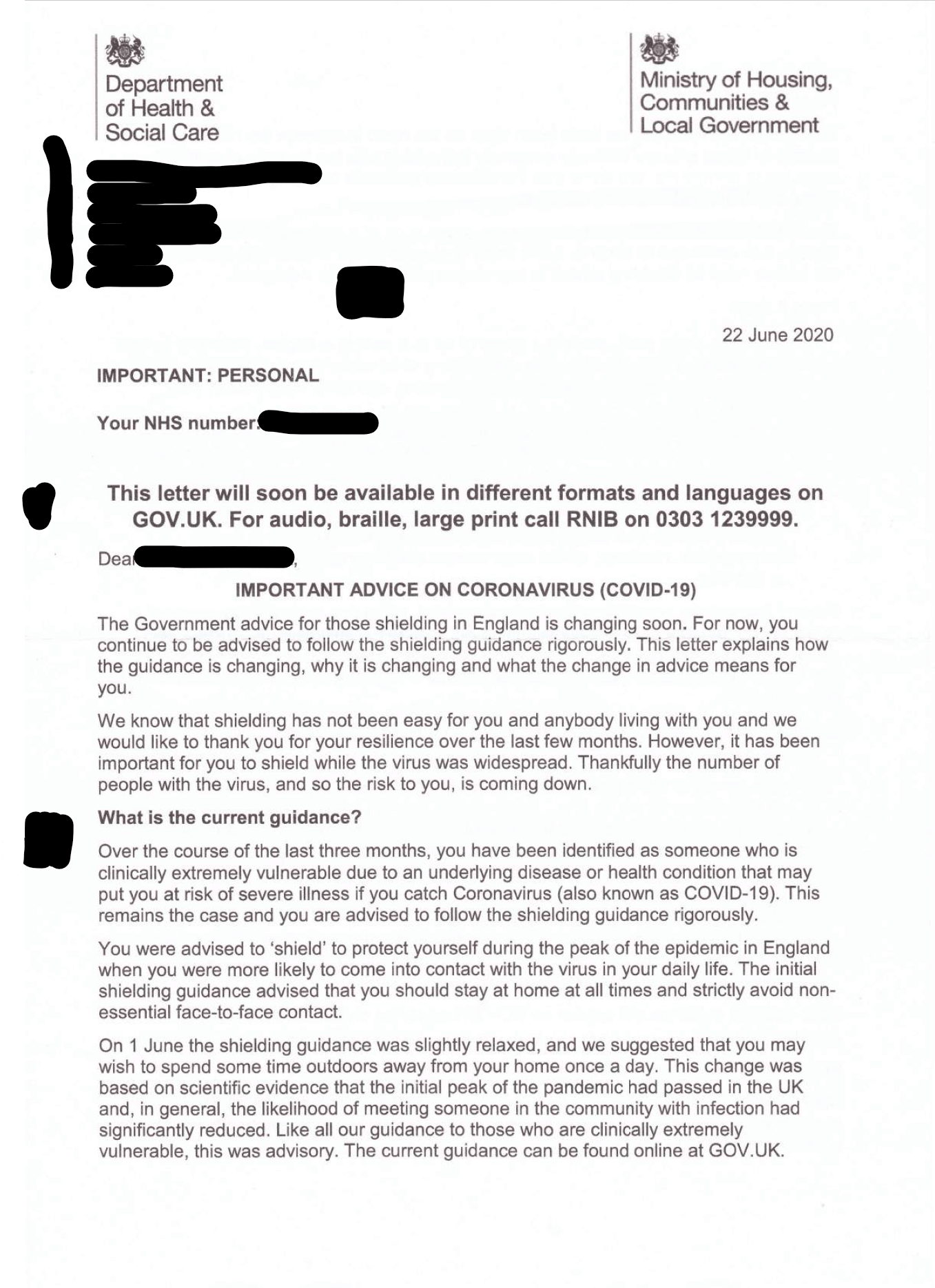
The government announced in March that patients who were the most (extremely) vulnerable to COVID-19 (Coronavirus) needed to shield (self-isolate for 12 weeks because their medical vulnerability) themselves from people outside their household and take other measures within the household to minimise the risk of catching the virus.
On the 23rd June, the Government made a major update to that advice that we have summarised here . At the same time they sent out a second letter describing these changes to those shielding. This article describes who should receive these latest letters, what’s in them, why they are important, and what to do if you haven’t received one.
If you are eligible, ensure that the government can provide services to you by registering at: www.gov.uk/coronavirus-extremely-vulnerable or calling 0800 0288327.
Here is the article about the original letter of advice to those shielding.
What is in the letter?
Here is a sample of a letter:
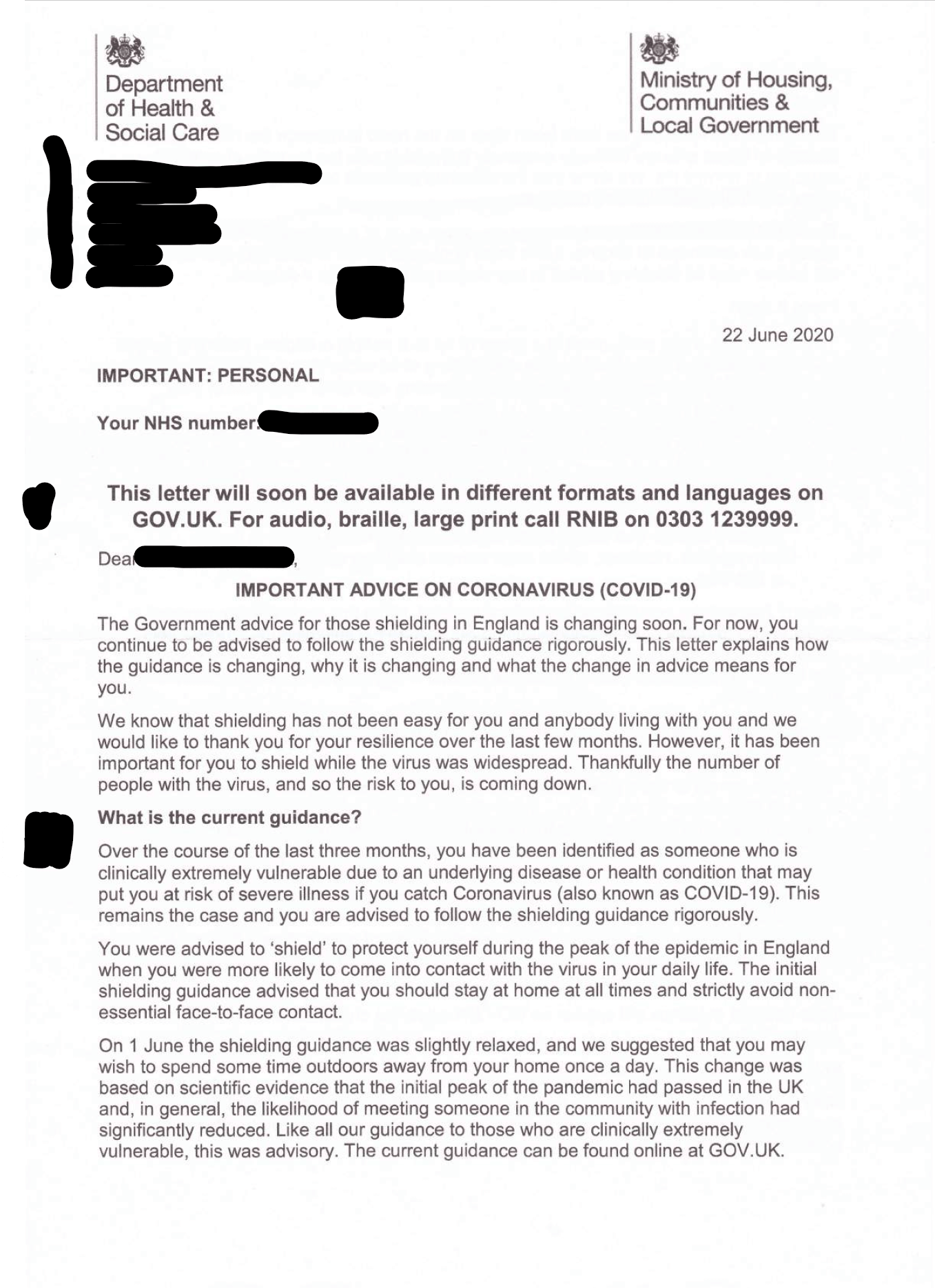
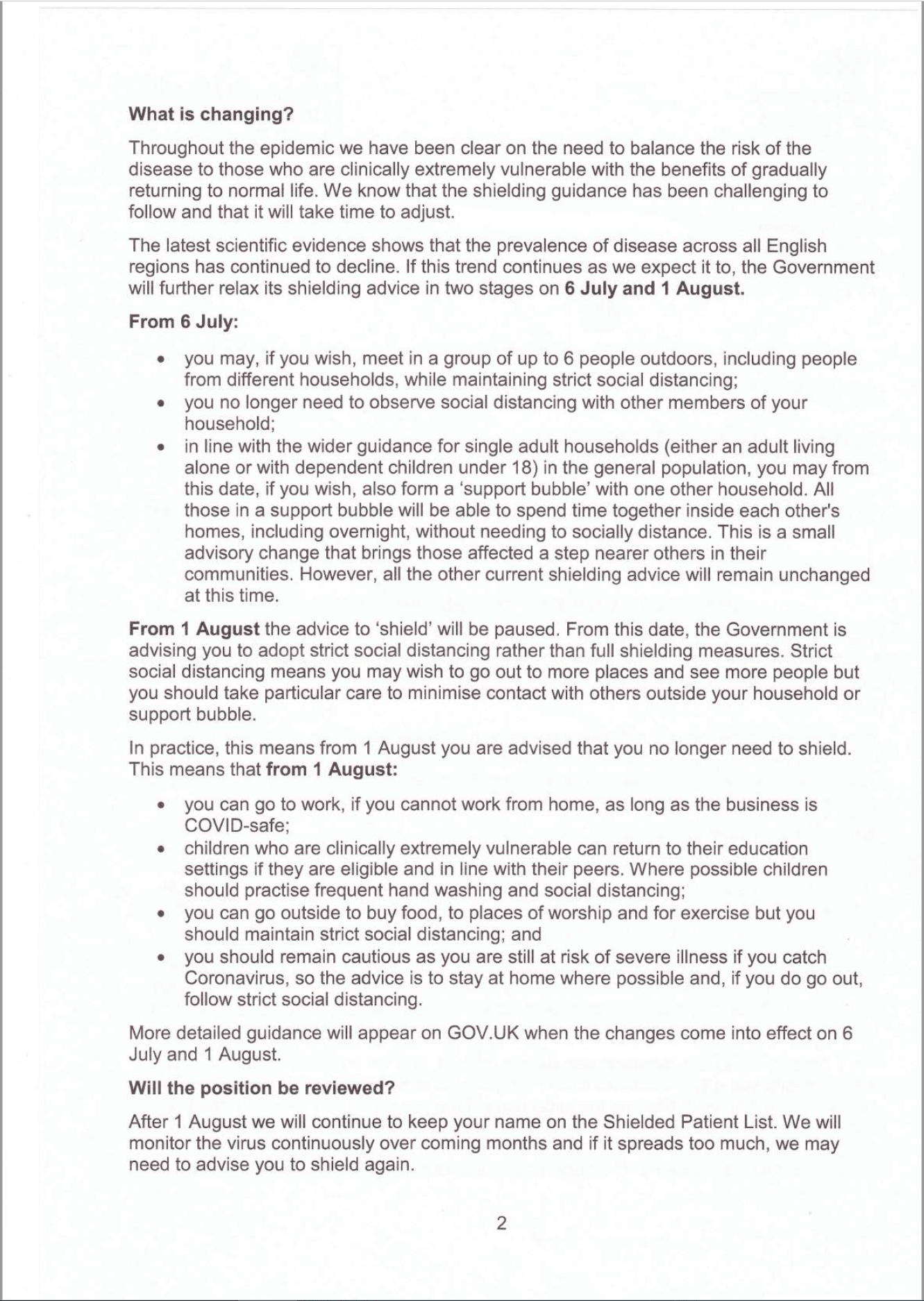
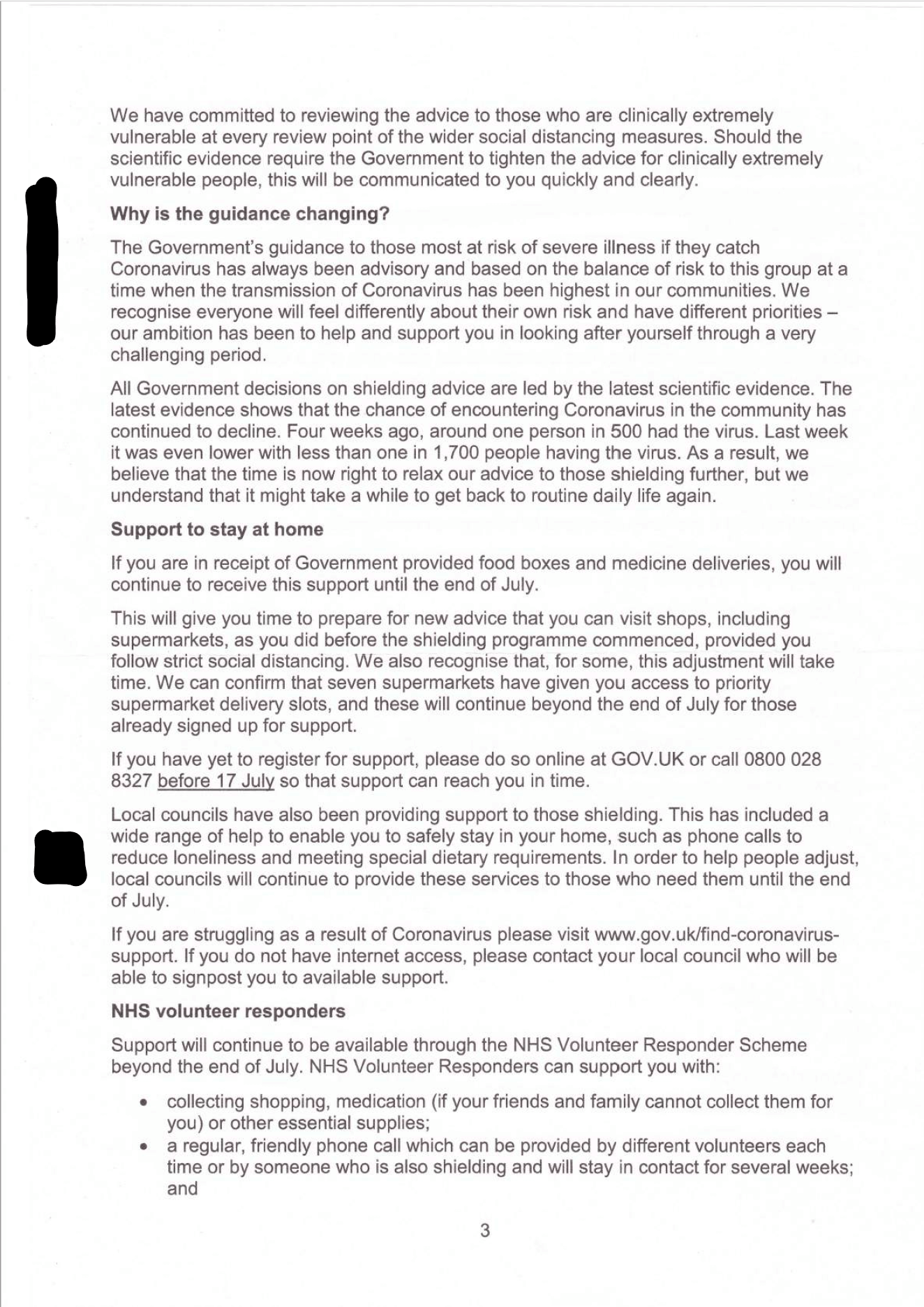
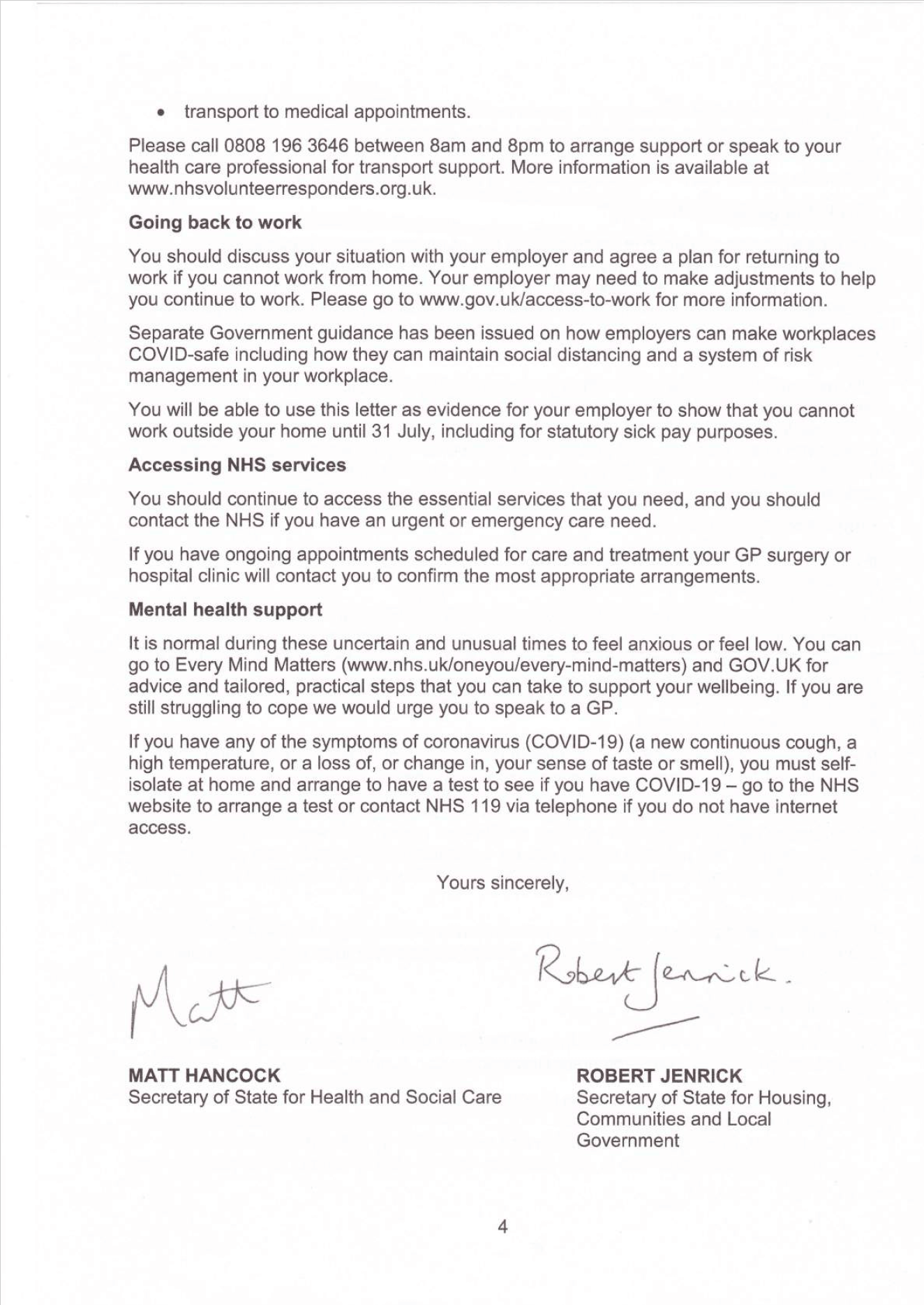
Who should receive a letter and what is the difference between vulnerable and extremely vulnerable?
The letter is sent to people the government defines as extremely vulnerable. The criteria are here:
Criteria for extremely vulnerable people
For kidney patients the key groups are considered extremely vulnerable are transplant and dialysis patients.
For additional clarity, the government describes 5 segments of the population when providing advice and support. Note the difference between vulnerable (underlying health condition – such as diabetes or chronic kidney disease) and extremely vulnerable (serious underlying health condition – such as dialysis or transplant patients).
The table below outlines these groups and the summary of advice (as of 22nd March) applicable to them.
| Group | 0-69 | 70+ | Pregnant women | Underlying health condition | Serious underlying health condition |
| Examples | self-evident | Diabetes, CKD | Dialysis, Transplant | ||
| Susceptibility to the virus | Standard | Vulnerable | Extremely vulnerable | ||
| Risk of severe illness from COVID-19 | Low to medium | High (or unclear so precautionary) | Very high | ||
| For more information visit | stay at home | Guidance for the vulnerable | Guidance for the extremely vulnerable | ||
Kidney Care UK provides some more details about how the list of patients is compiled within this section:
https://www.kidneycareuk.org/news-and-campaigns/coronavirus-advice/#shielding




